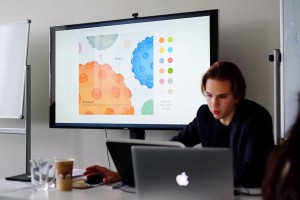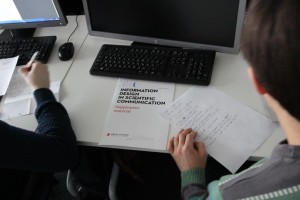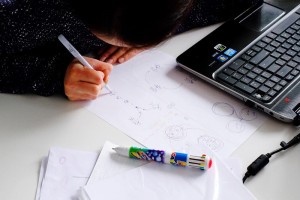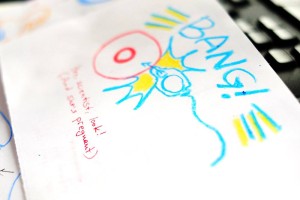 One of our goals here in Skoltech is to bridge the gap between science and research to society and industry. We don’t settle for pure research for the sake of research. We encourage our students to get out of the lab, cooperate with industry, establish start-ups, and pitch in competitions – in order to pursue realization of their research. But communicating one’s research demands other skills. During the independent study period (ISP), Skoltech students got a chance to learn some skills that would help them exactly with that.
One of our goals here in Skoltech is to bridge the gap between science and research to society and industry. We don’t settle for pure research for the sake of research. We encourage our students to get out of the lab, cooperate with industry, establish start-ups, and pitch in competitions – in order to pursue realization of their research. But communicating one’s research demands other skills. During the independent study period (ISP), Skoltech students got a chance to learn some skills that would help them exactly with that.
The “Informational and graphic design in scientific communication” course was the idea of Prof. Konstantin Severinov, Director of the Center for Data-Intensive Biomedicine and Biotechnology. He invited professionals from the “Visual Science” design studio, which specializes in scientific visualization, design and communication.
Ivan Konstantinov, one of the lecturers on behalf of the studio, gives a short background: “Our team in Visual Science have seven years experience in the field of scientific visualization, design and communication. We know very well that it gets more effective with superior visual materials. We found that even some basic skills in illustration, presentation or poster design can significantly improve the communication process. No matter if a scientist communicates with other scientists, wide audience or investors.
The purpose of the course was to give the Skoltech students and scientists an overview of the basic skills in graphic design and show how to apply them to the most common tasks that every scientist faces very often: creating graphics for articles and reviews, making posters and presentations for conferences”.
During the course, the students were exposed to the following topics:
- Introduction to the design method
- Basics of Graphic Design
- Preparation of the scientific base of information and analysis
- Design of scientific illustration
- Outsourcing of works on creation of design
- Design Theory presentations
- Workshop on the creation of presentations
- Qualities of a good scientific poster
- Design diagrams
- Tools of information design for scientists
- Workshop on the creation of a scientific poster
Does this meet the needs of the students? “I’m a PhD Student, and I don’t have to take any ISP courses” says Anastasia Naumova, a student from the product design and advanced manufacturing program, “I’m here because I’m a scientist, and I want to make really cool presentations. I think I do a cool research, and I want people to really understand what I’m doing and I think that this course will help me to deliver the information to people”. Denis Vetsler, a student in the photonics and quantum materials track adds “During the lessons I see that what I learn and what I hear from the teachers is very useful for me”.
Konstantinov sums up the course: “The overall result was really good. We found that most of the students become familiar with fundamental principles of graphic design, principles and some rules behind good scientific illustration, poster and presentation. All our students completed the survey after the course. It has some general questions and also they could give us feedback for each topic we discussed. More than 80% оf topics was rated as “It was useful, it was clear, I need more information of that kind”. I think it’s really impressive feedback for the alpha version of the course”, and concludes “Surely, we’ll take into consideration all the suggestions and advice of Skoltech education department specialists to make next courses better.”
We asked Konstantinov to give a quick tip for you, the readers. “Poor design in the widest definition of this word can spoil your communication in presentation, poster, scientific illustration etc. Help your audience to see your message clearly, fast and with pleasure”, he advises.






